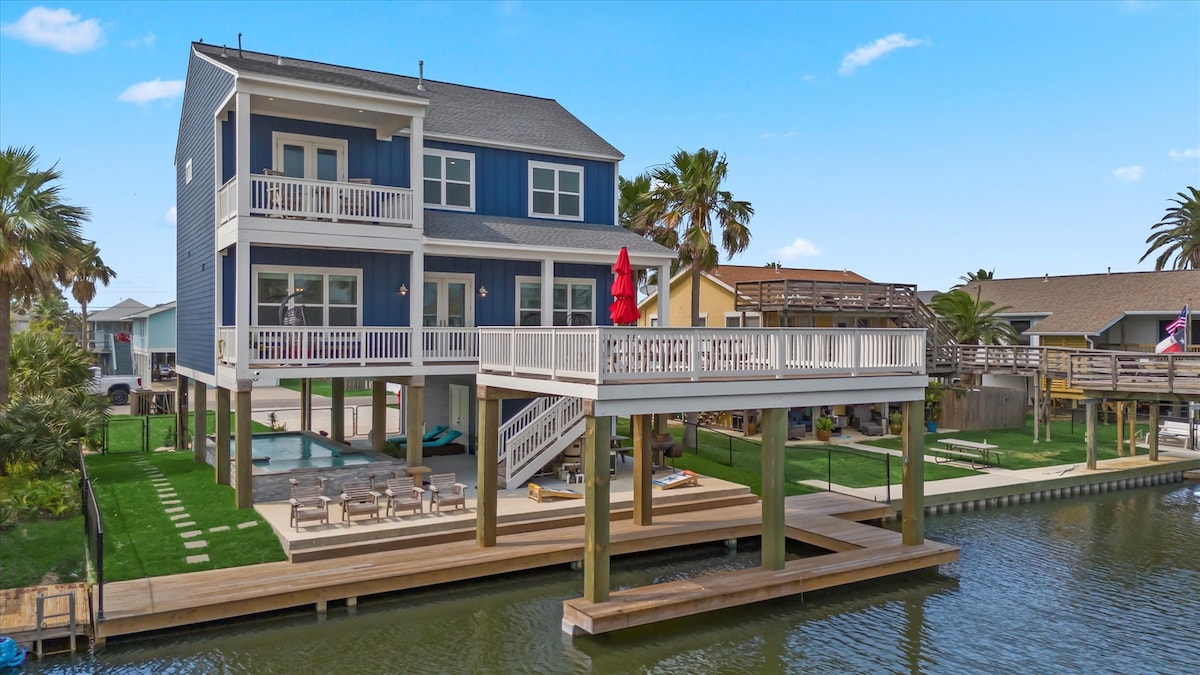
When it comes to waterfront living or commercial properties in Houston, having a well-built dock is more than just an aesthetic addition. houston dock construction involves precision, quality materials, and expert planning to ensure safety, longevity, and functionality. Whether you are building a private dock for your home or a commercial dock for boating operations, understanding the construction process is essential.
Why Houston Dock Construction Matters
A dock serves multiple purposes—providing access to water, enhancing property value, and offering a space for recreation. In Houston, the demand for dock construction has grown due to the city’s proximity to rivers, lakes, and the Gulf Coast.
Key benefits of professional dock construction in Houston include:
- Durability: Properly constructed docks withstand harsh weather conditions, including humidity, storms, and occasional flooding.
- Safety: Ensuring that the dock is stable and built with the correct load-bearing capacity prevents accidents.
- Aesthetics: A well-designed dock complements the surrounding landscape and enhances property appeal.
- Functionality: From fishing and boating to relaxation and social gatherings, a dock serves multiple practical uses.
Types of Houston Dock Construction
There are several types of docks commonly built in Houston. Each type has unique advantages depending on the property, water depth, and intended use.
Floating Docks
Floating docks are popular for areas with fluctuating water levels. These docks float on the water’s surface and are anchored with pilings or weights.
Pros:
- Adjustable to changing water levels
- Relatively easy to install
- Ideal for smaller watercraft
Cons:
- Less stable in rough waters
- Requires periodic maintenance of flotation materials
Fixed Docks
Fixed docks are built on pilings driven deep into the waterbed. These docks are permanent structures and provide excellent stability.
Pros:
- Highly durable and long-lasting
- Can support heavier loads
- Suitable for commercial and residential use
Cons:
- More expensive than floating docks
- Requires deeper water and precise construction techniques
Composite Material Docks
Modern Houston dock construction increasingly uses composite materials instead of traditional wood. Composite docks are made from recycled plastics and wood fibers, offering longevity and low maintenance.
Pros:
- Resistant to rot, termites, and water damage
- Low maintenance compared to wood
- Eco-friendly and durable
Cons:
- Higher upfront cost
- Limited color options compared to natural wood
The Houston Dock Construction Process
Constructing a dock in Houston involves several steps to ensure safety, durability, and compliance with local regulations.
1. Planning and Permits
Before any construction begins, it’s crucial to plan the dock design and obtain necessary permits. Houston has specific regulations regarding dock size, location, and environmental considerations.
Steps:
- Conduct a site survey to measure water depth, soil stability, and shoreline conditions.
- Determine the dock type and materials based on usage and budget.
- Apply for permits from local authorities to ensure compliance with environmental and zoning regulations.
2. Selecting Materials
Material choice significantly impacts the lifespan and maintenance needs of the dock. Common materials include:
- Pressure-treated lumber: Affordable and widely available but requires regular maintenance.
- Cedar or redwood: More durable than standard wood, naturally resistant to decay.
- Composite decking: Low maintenance, long-lasting, and eco-friendly.
- Aluminum: Lightweight, rust-resistant, and ideal for commercial docks.
3. Building the Foundation
The foundation is the backbone of any dock. Proper pilings or footings must be installed to ensure stability.
Fixed dock construction typically involves driving wooden, steel, or concrete pilings deep into the waterbed. For floating docks, the foundation relies on pontoons or floats that support the dock above water.
4. Decking and Accessories
Once the foundation is in place, the decking is installed. This involves:
- Laying boards evenly and securely
- Installing handrails and safety features
- Adding accessories like ladders, benches, or lighting
Proper decking ensures that the dock is safe for foot traffic and can handle the weight of equipment or boats.
5. Finishing Touches
After construction, finishing touches enhance functionality and aesthetics. Common additions include:
- Boat lifts: Protect boats from water damage and ease maintenance.
- Storage areas: For fishing gear, water sports equipment, or supplies.
- Lighting: Solar or LED lighting for nighttime use and safety.
- Shade structures: Pergolas or canopies to provide comfort during sunny days.
Choosing the Right Houston Dock Construction Company
Hiring the right contractor is essential for a successful dock project. A reputable houston dock construction company offers:
- Experience with various dock types and materials
- Knowledge of local regulations and permit requirements
- Customized designs tailored to your property and needs
- Warranty and post-construction support
Questions to Ask a Dock Builder
Before hiring a contractor, consider asking:
- How many docks have you built in the Houston area?
- Can you provide references or a portfolio of completed projects?
- What materials and techniques do you recommend for my property?
- Do you handle permits and inspections?
- What is the estimated timeline and cost?
Maintenance Tips for Houston Docks
Even the best-built docks require maintenance to ensure longevity. Key maintenance tips include:
- Regular inspections: Check for loose boards, rusted fasteners, or damage from water or storms.
- Cleaning: Remove algae, dirt, and debris regularly.
- Sealing and staining: Wooden docks benefit from seasonal sealing to prevent rot.
- Winter preparation: If applicable, protect the dock from ice or high water levels.
Conclusion
Investing in Houston dock construction is an excellent way to enhance your waterfront property, boost functionality, and enjoy the outdoors. From selecting the right materials to hiring a trusted contractor, each step plays a vital role in ensuring a dock that lasts for decades. Whether you prefer a floating dock, a fixed structure, or a modern composite design, professional construction guarantees safety, durability, and aesthetic appeal.
If you are looking to build or upgrade your dock, choose a skilled Houston dock construction company that understands the local environment, provides high-quality materials, and delivers expert craftsmanship. Your perfect waterfront experience starts with a well-constructed dock.


